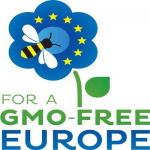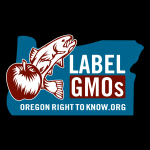Articles
18.12.2014 | permalink
EU: New scheme fails to change flawed GMO authorisation process

The European Parliament's environment committee today voted to endorse an agreement on a new scheme for the authorisation of genetically-modified organisms in the EU. The Greens voted against the new scheme, as it would renationalise decisions about GMO cultivation instead of reforming the risk assessment process for GMOs, which is urgently needed. After the vote, Green food safety spokesperson Bart Staes said:
“This new scheme risks being a slippery slope for easing EU GMO authorisations, without providing certainty for those wanting to opt-out or say 'no' to GMOs. It fails to provide a legally watertight basis for those countries wishing to opt out and, as such, this 'renationalisation' of decisions on GMO cultivation is a Trojan horse. The agreement would also fail to ensure there are meaningful mandatory measures to prevent the contamination of non-GM crops, with the myriad of issues this raises for growers wanting to remain GM-free. More importantly, it fails to really change the fundamentally flawed EU approval process in itself.
16.12.2014 | permalink
GMO authorisation in the EU: The Commission once again attacked for undue delays

On 17 October 2014, EuropaBio, Fefac and Coceral filed a complaint to the European Ombudsman, Emily O’Reilly, regarding the delay in the authorisation procedures concerning twenty applications for GMOs. This complaint occurs while the European bodies are close to an agreement on the GMO opt-out proposal, an agreement supposedly aimed at “unblocking” the GMO authorisation process.
The Ombudsman’s website does mention the case but does not provide detailed information. The small amount of information that is provided states that the complaint concerns allegations of maladministration by the European Commission of the GMO applications. The European Commission is accused of having breached its duties relating to a “reasonable time-limit for taking decisions”. The Ombudsman’s office told Inf’OGM that the plaintiffs are EuropaBio (European Association for Bioindustries), the European Feed Manufacturers’ Federation (FEFAC) and the European association representing the trade in cereals, rice, feedstuffs, oilseeds, olive oil, oils and fats and agrosupply (Coceral).
The three associations consider that the European Commission has badly administered twenty applications of GMOs for import, food and feed under regulation 1829/2003 by causing “illegal and unreasonable delays”. They claim that the “Commission should put to vote in the relevant committee and/or adopt a formal decision on the twenty pending applications and abstain from causing any such delays in the authorisation process in the future”.
The Ombudsman’s office told Inf’OGM that they had only published limited information so far as the case is ongoing. They added that they have already “inspected the relevant files in the Commission” and that they are “waiting for the Commission’s opinion on the allegations which they should submit by the end of January 2015”. At the time of publication of this article, Inf’OGM was still expecting requested comments from Fefac, Coceral and EuropaBio.
15.12.2014 | permalink
Australia: Who are the GM-Free Farmers?

The GM-Free Farmers are a not-for-profit farming group with membership currently open to any Western Australian farmer.
The idea to start a new group dedicated to GM-free farming has been in the making for a number of years. The current situation in WA regarding the possible repeal of the GM Crop-Free Areas Act 2003, finally drove a core group of fifteen mostly conventional farmers from all over WA to take the initiative, hold an informal meeting and form the GM-Free Farmers in Sept 2014. A number of objectives were carefully drafted into a Mission Statement by which all future actions will be governed.
The most important issue the group quickly identified was the current lack of representation in the media and government of their views. With a group representing the majority of farmers' opinions on GM crops, a much more balanced debate can be had instead of just relying on industry motivated
statements from a few outspoken individuals as has been the case up until now.
A recent national poll (Farmonline - 9/6/14 "Should Australia embrace GM wheat?") attracted a staggering 1554 votes with a result of 93.2% against the idea. The GM-Free Farmers aim to give this clear majority of farmers a much needed outlet to voice their concerns on GM issues.
12.12.2014 | permalink
GMO labeling in Oregon - neither defeated nor discouraged
The Yes on Measure 92 campaign is ending its efforts today. While Measure 92 will not emerge victorious in this election, our growing movement to label genetically engineered foods is neither defeated nor discouraged.
On Tuesday we went to court in a final attempt to have 4,600 uncounted ballots opened and counted in this race. Judge Kantor agreed that leaving 4,600 ballots uncounted in this election will cause irreparable harm to those voters and to the Measure 92 campaign. But he ultimately ruled that Oregon law didn’t allow him to issue the order to stop count.
More than 4,600 valid ballots rejected by elections officials remain uncounted. Those voters did everything right, completing, signing and returning their ballots on time. If their voices could be heard we believe it would result in victory for Measure 92.
11.12.2014 | permalink
Farmer interest in non-GMO beans, corn grows
A strong interest by farmers in growing non-GMO soybeans next year may be leading to lower premiums offered by buyers of the product.
Wayne Hoener, vice president of sales for eMerge, a Des Moines-based seed company that sells non-GMO corn and soybean seed to farmers, says there has been strong interest from farmers for non-GMO seed for next spring.
There are several reasons for that interest, he says.
One is the declining commodity prices. A premium of $2 per bushel, for example, marks a higher percentage at $9 beans than at $13 beans.
The same is true of the corn premiums. The premium total may be slipping, but it still figures to a higher percentage of price than a year or two ago.
Another reason is weed pressure. There have long been concerns about the potential for weed resistance to glyphosate. Some farmers may be making the switch as one way of dealing with that weed pressure.
“You have people questioning the value of the Roundup gene,” says Iowa State University weed specialist Bob Hartzler. “How many are doing it (making the switch) because of that concern, I don’t know.”
Even without those concerns, interest in non-GMO crops has been increasing in recent years, Hoener says. One reason for that is companies producing non-GMO seed have done a better job of producing varieties that yield as well as the GMO varieties.
09.12.2014 | permalink
Label GMO in Oregon: Yes on Measure 92 Files Emergency Lawsuit

Yes on Measure 92 Files Emergency Lawsuit Today on Behalf of 4,600 Disenfranchised Voters Asking Court to Order Their Votes Are Counted in Current Statewide Recount
More than 4,600 registered Oregon voters who cast valid ballots on time are wrongly being disenfranchised by elections officials – more than enough votes to potentially change the outcome of the Measure 92 statewide recount
Portland – The Yes Measure 92 has filed a lawsuit today in Multnomah County Circuit Court on behalf of more than 4,600 Oregon voters whose valid ballots are not being counted by elections officials.
“We have said from the beginning of the recount that all valid votes should be counted, but unfortunately that is not happening currently,” said Paige Richardson, a spokesperson for the Yes on Measure 92 campaign. “That is why we are filing this emergency lawsuit today, asking for a temporary restraining order halting the certification of the Measure 92 mandatory statewide hand recount until the votes of thousands of Oregon voters currently being unlawfully disenfranchised by elections officials are counted.”
08.12.2014 | permalink
The largest German poultry brand returns to GMO-Free feed
German Poultry Industry Giant Returns to GMO-Free Production
Wiesenhof, the largest German poultry producer, has announced that it will turn back to using GM-free animal feed due to consumer demand. Wiesenhof’s U-turn comes just 10 months after the German Poultry Association (ZDG) unilaterally declared that it was stopping using GM-free animal feed, following similar moves by other associations in England and Denmark. The reasons provided for the step after over a decade of GMO-free feeding were an alleged shortage of GMO-free soya, the risk of contamination, and the associated legal uncertainty. Wiesenhof confirmed on Friday that they will soon be in a position to supply GM-Free fed poultry again, as this is what is “desired by customers”.
Alexander Hissting of VLOG (Association Food without Genetic Engineering) told Spiegel; “We expect an almost complete return of the poultry meat industry to GMO -free production in the coming months.”
Wiesenhof’s decision is a direct result of pressure from the top German supermarkets. In late August the supermarkets, with a broad consensus, demanded the German Poultry Association (ZDG) to stop using GMO feed for both egg and poultry meat production, starting from January 1st 2015.
- German Poultry Industry Giant Returns to GMO-Free Production - Sustainable Pulse
- Geflügelproduzent Wiesenhof verzichtet auf Genfutter - SPIEGEL ONLINE
- Gentechnikfütterung in der Geflügelindustrie - Ohne GenTechnik
- VLOG - Verband Lebensmittel ohne Gentechnik e.V. (english)
- WIESENHOF is the leading brand on the German poultry market today
05.12.2014 | permalink
New EU GMO law leaves countries exposed to industry attacks
Brussels – At the end of a late-night round of negotiations, national governments agreed on a new EU law to provide countries the right to ban GM crops in their territory. However, the agreed text delivers less than it promises, as it prevents countries to use evidence of environmental harm to justify national bans of GM crops.
- New EU law grants countries right to ban GM crops but leaves them exposed to industry attacks | Greenpeace EU Unit
- Deal avoids worst but fails to provide full certainty for those wanting to say no to GMOs in Europe - The Greens | European Free Alliance
- European Commission - Commissioner Andriukaitis welcomes provisional political agreement on GMO cultivation
- Deal reached on new rules allowing flexibility for EU countries to ban GMO crops - ENVI Press release - Food safety − 04-12-2014 - 17:49
- EU deal gives countries opt-out on growing approved GM crops | Reuters
- EU states able to accept or reject GM crops | Irish Examiner
- For a GMO-free Europe
- New GMOs law will strengthen consumer's and farmer's protection | Socialists & Democrats
04.12.2014 | permalink
Minnesota Schools Go GMO Free
MINNESOTA SCHOOL DISTRICTS AIM TO REDUCE GMOs in SCHOOL FOOD
GMO Awareness Day will be paired with efforts to transition to non-GMO foods
November 3, 2014—(Minneapolis, MN) Five Minnesota school districts plan to raise awareness about genetically modified foods and take steps to reduce GMO content in school meals.
Schools in Hopkins, Minneapolis, Orono, Shakopee, and Westonka will celebrate GMO Awareness Day on November 5 by offering non-GMO menu options and communicating to students and families about GMOs.
Director-level staff at the five districts began meeting to discuss GMOs in April, 2014, and decided to hold a collective awareness-raising event to help engage their communities.
“We want to start conversations about the foods we serve and how our decision-making works,” says Laura Metzger, Director of Food and Nutrition Services at Westonka Public Schools.
“Our students will grow up to make their own decisions about the foods they eat, so this is an opportunity for education.”
GMOs, or “genetically modified organisms,” are plants or animals produced using a technology that merges DNA from different species to create new combinations of plant, animal, bacterial and viral genes that cannot occur in nature or in traditional crossbreeding.
Now that most corn, soy, canola, cotton, and sugar beet crops grown in the United States are genetically modified, it is estimated that up to 80 percent of processed foods in U.S. supermarkets contain GMOs.
03.12.2014 | permalink
United Nations: The world agricultural needs can be met with localized organic farms
United Nations Calls for an End to Industrialized Farming
Will Truthout keep publishing stories like this in 2015 and beyond? That depends on readers like you. Donate now to ensure our work continues!
In 2013, the United Nations announced that the world's agricultural needs can be met with localized organic farms. That's right, we do not need giant monocultures that pour, spray and coat our produce with massive amounts of poisons, only to create mutant pests and weeds while decimating pollinators and harming human health. Don't believe the hype: We do not need genetically modified foods "to feed the world."
From my experience, many of these - how shall we call them - "worker bees" (i.e the GMO salesmen) who work for these companies and spread this propaganda, actually believe conventional tactics are necessary to ensure food security. They've drunk the Kool-Aid and cannot envision another possibility. The changes threaten their very existence.
Organic agriculture, which has gone from a fringe movement to a multibillion industry, can produce high yields and withstand disaster and duress much better than chemical-reliant crops, according to reports coming out of the International Federation of Organic Agriculture Movement (IFOAM), which held its 18th annual world congress in Istanbul this past October.
And a 30-year study from the Rodale Institute, showed that organic farm fields yielded 33 percent more in drought years compared with chemically managed ones.
In an article titled "Yes Organic Food Can Feed the world," Anna Lappe, author and educator, known for her work as an expert on food systems, writes that "organic agriculture is taking off around the world, especially where it's needed most."
- United Nations Calls for an End to Industrialized Farming
- UN: Industrial Agriculture Endangering Indigenous Right to Land | teleSUR
- Paraguay: UN expert concerned over indigenous peoples’ rights to land, resources
- Victoria Tauli Corpuz, the U.N. Special Rapporteur on the rights of indigenous peoples
- Family farmers ‘key’ in food-secure future | Zero Hunger Challenge
- First Peoples Worldwide » More and More, Indigenous Crops Are Being Celebrated Across the Globe
- First Peoples Worldwide » Dine Nation Declared GMO and Pesticide-Free Zone
- Dine Nation Declared GMO and Pesticide-Free Zone
